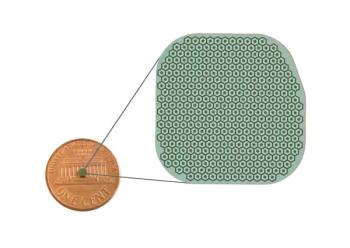
Nebraska legislators weigh scope expansion
Optometrists here plan to ramp up efforts this fall to secure legislators' support for a bill that would allow them to perform minor surgical techniques and laser procedures, and administer oral glaucoma medications.
Key Points
Lincoln, NE-Optometrists here plan to ramp up efforts this fall to secure legislators' support for a bill that would allow them to perform minor surgical techniques and laser procedures, and administer oral glaucoma medications.
First introduced in 2009, the bill was re-introduced in January 2011 after a lengthy administrative review stalled action on the bill. Dave McBride, executive director of the Nebraska Optometric Association (NOA), said he is optimistic the legislature will vote upon the measure in 2012.
Before the session resumes in January, McBride said the NOA will resume efforts to educate lawmakers about expanding optometry services to make eye care more accessible for Nebraskans.
"There's certainly a significant difference in terms of accessibility to optometrists versus ophthalmologists," he said.
The bill was patterned after Oklahoma's 1998 landmark legislation that allowed optometrists to perform some surgical procedures. Earlier this year, Kentucky became only the second state to grant limited surgical privileges to optometrists, and efforts are under way in South Carolina and Texas to obtain similar rights.
A spokesman for the American Optometric Association said he could not discuss states' efforts since each works independently on legislative matters. However, the American Medical Association has reported that optometry organizations in about 26 states are pursuing legislation that would expand their scope of practice to include some surgical procedures.
In Nebraska, the proposed bill would allow optometrists to perform capsulotomies, trabeculoplasties, and laser peripheral iridotomies, and to remove skin lesions. It also would authorize optometrists to inject pharmaceuticals into the eyelid, and permit optometrists to prescribe oral medication for glaucoma. The association also is seeking permission to perform these procedures within the state in a hands-on, educational setting before the bill is passed, McBride said.
The bill has been opposed by ophthalmologists, who have protested that optometrists lack the training and experience to handle complications that may arise during surgery. They argue that optometrists also lack the thousands of hours of supervised experience ophthalmologists receive through their residency training.
However, McBride said, optometrists have plenty of experience working in eye care, and can easily gain the additional training needed. After all, he said, many ophthalmologists learned to use lasers and perform newer techniques through continuing-education courses well after they graduated medical school.
Many optometrists co-manage patients with ophthalmologists and already perform post-op care, making them familiar with the complications that can arise and how to manage them, McBride added.
"This is a pretty small step forward for optometrists, not the quantum leap that medicine would like people to believe," he explained. "Many of these procedures can be done with topical anesthetics that optometrists already use now. It's portrayed intentionally by medicine to legislators and the public that this is comparable to [treating] someone in a surgical suite for a vastly complicated case, and that's not what we are talking about."
While new procedures would require some training, he argues that the equipment and instrumentation is not very complicated, and is similar to that already used in optometry clinics.
The "vast majority" of the NOA's members are enthusiastic about expanding their services and predict a significant benefit for their patients, even if not all optometrists would immediately pursue them, McBride said.
Still, there are hurdles, including what he called a "negative" review of the bill in 2010 by the legislature's administrative review process-something McBride acknowledges has been the experience for most health professions that have attempted to expand their powers, and won't necessarily block passage of the bill. It just means optometrists have to help legislators understand how and why the bill will help residents achieve better eye care.
"The fact that only a couple of states right now have comparable scope of authority is an indication this is a difficult threshold for optometry to get passed," he said, adding that key legislators have suggested a compromise might be required. "It's not impossible, but it raises questions in the minds of a lot of lawmakers. We have good support."
Newsletter
Want more insights like this? Subscribe to Optometry Times and get clinical pearls and practice tips delivered straight to your inbox.





























